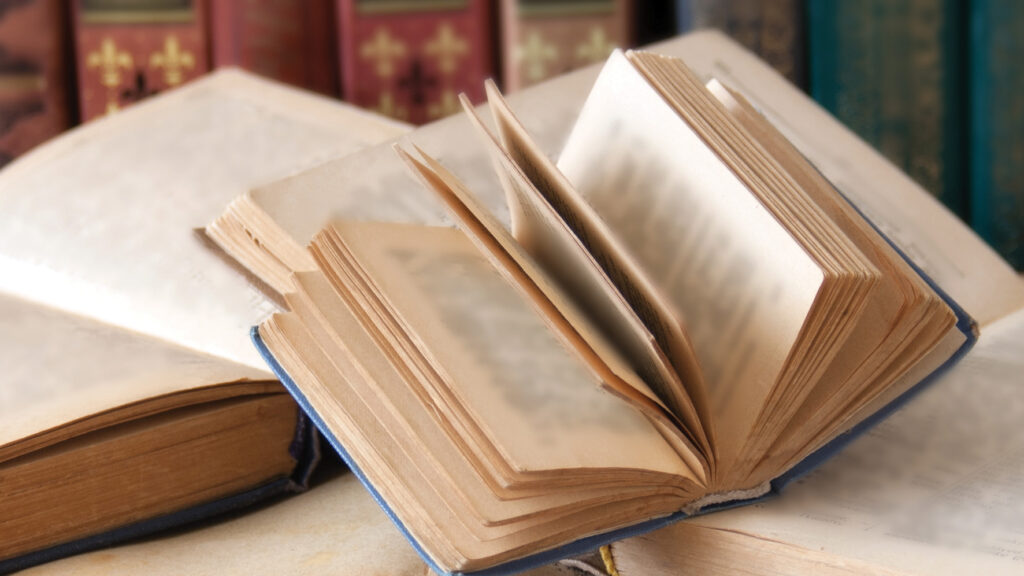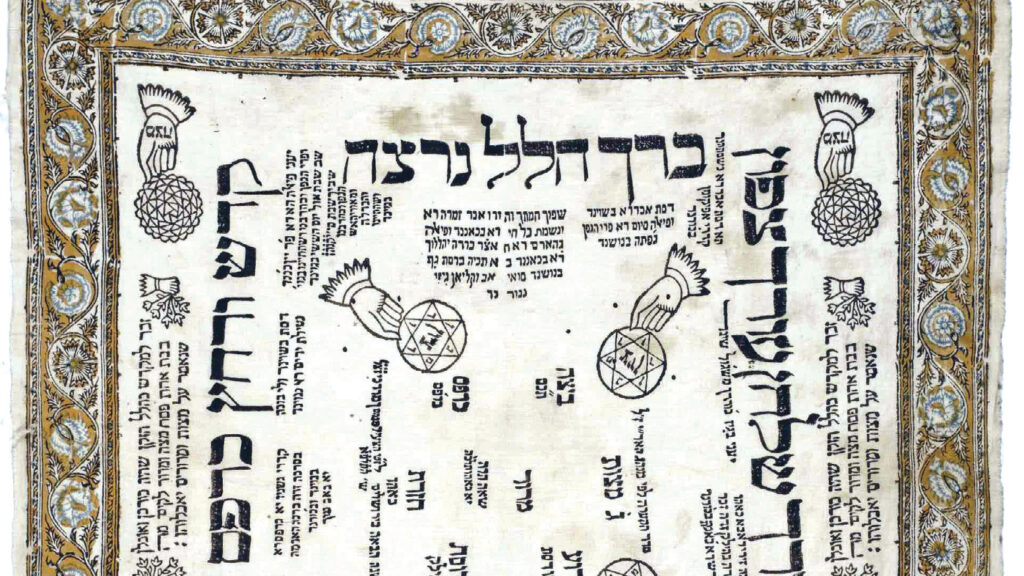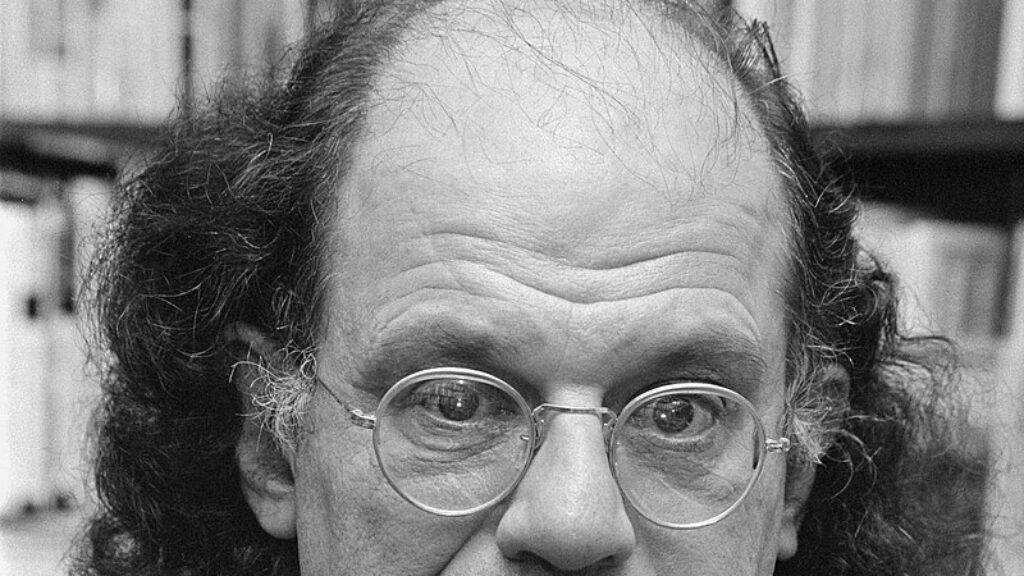An Interview with Dr. Erica Brown
BY MORIAH SCHRANZ
Today more than ever before, we need strong examples of leadership in the Jewish community. Dr. Erica Brown, Vice Provost for Values and Leadership at Yeshiva University and the founding director of its Rabbi Lord Jonathan Sacks-Herenstein Center for Values and Leadership, is one of them. I had the privilege of speaking with Dr. Brown earlier this summer, and we discussed her career, her experiences as a female Jewish educator and author, and her for advice on dealing with campus issues and antisemitism. Her thoughtful answers gave me deeper insights into her life and the wisdom and lessons she has accumulated over the years.
This interview has been edited for length and clarity.
Moriah Schranz: Hi Dr. Brown, thank you for taking the time to speak with me. Can you describe the nature of your work as Vice Provost and Director of the Sacks-Herenstein Center?
Dr. Erica Brown: I would say the thing that we do most consistently and importantly is fund a number of undergraduate and graduate cohort groups. These are students who receive significant funding in order to participate in leadership development. We do research in Jewish studies, which means publishing and teaching on a high level, and we work to identify and support students with strong Judaic backgrounds who we believe will be very important leaders in the Jewish community in the years to come. We take these students and we work with them to develop their unique social impact projects. For example, we have a clinic in our law school to exonerate those in prison who are falsely convicted, and we have another project working on social services for Nigerian immigrants. We are interested in the writings and worldview of Rabbi Jonathan Sacks, we are interested in world impact, and the ways in which Jews can make the world better. Rabbi Sacks was specifically interested in the ways that Jews can heal the fractured world, so we designed the program to embody that.
MS: Having had a personal relationship with Rabbi Sacks and now teaching his values, how do you think that he would approach issues on college campuses regarding Israel?
EB: I think we have a very good sense because he wrote a great deal about antisemitism and was an academic. He was very concerned about the direction that much of Europe was taking. He really predicted that things were going to get worse, unfortunately, and he was correct. He predicted that the scale of antisemitism and the type of antisemitism would get worse. He had a very prophetic voice, and he had an understanding that anti-Zionism was going to become the new antisemitism. In that sense, I think he had a very good instinct for the present moment.
MS: This is a big question, but do you think that the Jewish community should try and fight back to build Jewish-friendly campuses at the elite universities that have had trouble recently, or should we invest in Jewish institutions like Yeshiva University, other programs in Israel, and the few universities that have been very supportive of the Jewish community?
EB: Who is “we”?
MS: “We” are the future students and the adults that are giving money and resources to these universities.
EB: I think the main job of a student is to build yourself up and to learn along the way how you will contribute to building a more just society. I do think we’re spending an awful lot of money on hiding antisemitism, and it hasn’t gotten us anywhere. I think we need to turn to Judaism. That means investing a lot in elementary and high school education. By the time students get to college, often it’s too late. If Jewish students don’t have a strong enough core of Jewish knowledge and practice to really feel strong enough in their commitment to Israel and their commitment to Torah and God, then they won’t have those building blocks to be able to resist a lot of the antisemitic tropes that are being thrown against them.
MS: Yeshiva University did not experience the surge of campus antisemitism that engulfed many other elite institutions. Were you surprised by how bad things got, especially at Harvard, since you went there, and George Washington University, where you previously taught?
EB: Yes. I don’t think anyone could have predicted it would get so violent, so quickly, and that Jewish students would feel really under threat in the way that they did. Protest is an important form of freedom and democracy, I don’t have any opposition to that, but I think that there’s a difference between a protest and a hate-filled climate where things like destroying buildings are considered okay and in favor of a cause. Many students do not understand the complex dynamic; they don’t understand the withholding of human rights in many of the countries that they are supporting. I think the idea that Hamas was treated as freedom fighters and not as a terrorist group has only led to more deaths [in the Middle East].
MS: I’d like to explore your own Jewish background. Did you grow up in an observant household?
EB: I did not.
MS: How did you come to observance?
EB: I went to a small Hebrew school and a student in the class, who I’m still in touch with today, asked me if I wanted to go on a shabbaton. I was in elementary school, and I really didn’t know what a shabbaton was, but I went, and I saw something that I really admired; I saw people praying who were kind and thoughtful to each other. They had something larger that they were living for, and I found that very appealing. I became more and more observant, and then in my junior year of high school, I was too observant to go to school on holidays and decided to go to live away from home to go to a Jewish school.
MS: Do you think going away for high school made an impact on your desire to become a Torah teacher?
EB: Not so much going away for high school, but I saw the power and the potency of Judaism to change lives because it changed my life and the lives of my family who also ended up becoming observant. I think people are hungry for meaning. They’re looking for ways to improve their lives and looking for ways to live in a calmer, more serene, more just world. It’s not to say that everybody should be Jewish, but I think everybody should have a faith. I felt that Judaism added a very rich dimension to my life, so why wouldn’t I want other people to have that?
MS: Has it been hard teaching in the field of Judaic Studies, and specifically as a woman, have you ever struggled to be accepted in certain environments?
EB: I see that as a two-part question. Has it been a challenge? Oh, no, it’s been the gift of a lifetime. I assume many people have chosen lots of different professions and many of them now feel that they have some material success, but I think they still struggle with some emptiness, and are trying to identify what their contributions are. I wake up and I feel like every day is meaningful. It doesn’t mean that every day is a good day or an easy day, but it’s always a day of meaning and very often a day of deep beauty. I haven’t experienced it as a challenge. Are there challenges in education? Sure. Are there challenges in leadership? Sure. Is it easy as a woman? I would say it’s much easier now than when I started. For most of my life, I’ve been in a male-dominated environment. That’s a comfortable space for me for the most part. It wasn’t always a welcome space, but I had interests that lay in what was often a closed system. I was interested in Talmud, interested in learning on a high level. Today, it’s amazing how many institutions for women are thriving and successful, and how much Torah scholarship is being produced by women. It’s like a dream come true.
MS: Has it been hard to balance your career with having a family?
EB: It requires a lot of stamina, but I don’t think it’s hard. You have to have good time management skills and good executive functioning in order to prioritize and be committed as a mother and a grandmother of seven. My family is my number one priority. It’s what I would put everything else down for.
MS: You’ve written many books. Has your journey as a writer happened alongside, or separately from your career?
EB: It’s always been alongside. Writing is a very important creative outlet for me; it’s an important way in which I’ve learned. I think writing is a very important way of thinking. In Hebrew, the word tikun mean “edits,” so I always think of tikun olam as a writer, as the way that we edit the world by making it better.
MS: Thank you for taking the time to speak with me. Is there anything else you’d like to add before we finish?
EB: I believe that when it comes to teaching Torah and influencing the Jewish community, it’s really not only what you learn, but how you lead. Developing good leadership skills, listening attentively, trying to be as responsive as possible, trying to put ideas out there to give people hope and a sense of inspiration – all these things are critical to the world of Torah scholarship.
Suggested Reading

Shining Our Light Unto the Nations Through Jewish Teachings
BY ADIN LINDEN Jewish history is rife with enemies, from the Egyptians to the descendants of Amalek, a lineage that is seen as the greatest enemy of the Jews and…

Between Separating Ourselves and Seeing Ourselves in Others
BY YAEL BURGESS EISENBERG When a gentile came before Hillel and said he would convert to Judaism if Hillel could teach him the entire Torah while standing on one foot,…

Fortifying the “Torah” in Torah u-madda: A Plea to Modern Orthodox Day Schools
In a deep look at his background and motivations, the picture of Jewish writer Allen Ginsberg becomes more clear to the observer. His difficult past and masterful mix of secular, religious, and kabbalistic, as well as various other, themes in his work came to a head in his poem "Kaddish", written to be an elegy for his mother.

Learning as Creation: The Power of Jewish Education
BY ZACHARY KROHN It is no secret that education is one of the highest values of Judaism, and one can give many reasons for why that is the case. Education…